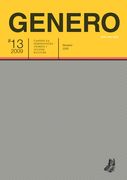Queer i queer teorija
Queer and Queer Theory
Author(s): Ivana SimićSubject(s): Gender Studies
Published by: Centar za ženske studije & Centar za studije roda i politike, Fakultet političkih nauka, Beograd
Keywords: queer; queer theory; sexuality; performativity; deconstruction
Summary/Abstract: We could easily say that the term ‘queer’ has become part of modern European day and age. In order to dei ne it, the following analogy can be applied: anarchy is to politics what queer is to sexual orientation and nationality. We could even go a step further and really simplify it: queer describes everything that is (considered to be) unnatural, weird, and even morbid! While queer symbolizes resistance towards everything that people usually define as ‘normal’, it also questions normality. The essay deals with linguistic, historical, and spiritual development of the term ‘queer’ that has been questioning the overall instability of subjective perception and relativity of the good old question “Who Am I?” By introducing some key terms, such as sexuality, instability of discourse, power games, performance, the essay shows how the concept of ‘queer’ and theory of (being) ‘queer’ have become established over the years. Overall, queer rebels against stability, against being defined and therefore put in a box, and against the traditional gender division, since all those have been molded by societies and, as a result, exist only on a level of discourse. Consequently, by focusing more on the disbalance between genders, sexes and desire, queer demonstrates the impossibility of both ‘natural’ sexuality and ‘natural’ gender. In a nutshell, the theory of ‘queer’ deconstructs socially accepted images and questions the stability of identity in general by avoiding moral judgment. In the same manner, queer focuses its attention on identity but without actually establishing it as a fixed category. Instead, it examines the problem of multi-dimensional differences and celebrates them through a colorful spectrum. Since people observe the world through language, in some ways queer ‘solves’ not only the identity crisis but the linguistic crisis as well.
Journal: Genero: časopis za feminističku teoriju i studije kulture
- Issue Year: 2009
- Issue No: 13
- Page Range: 183-192
- Page Count: 10
- Language: Serbian

